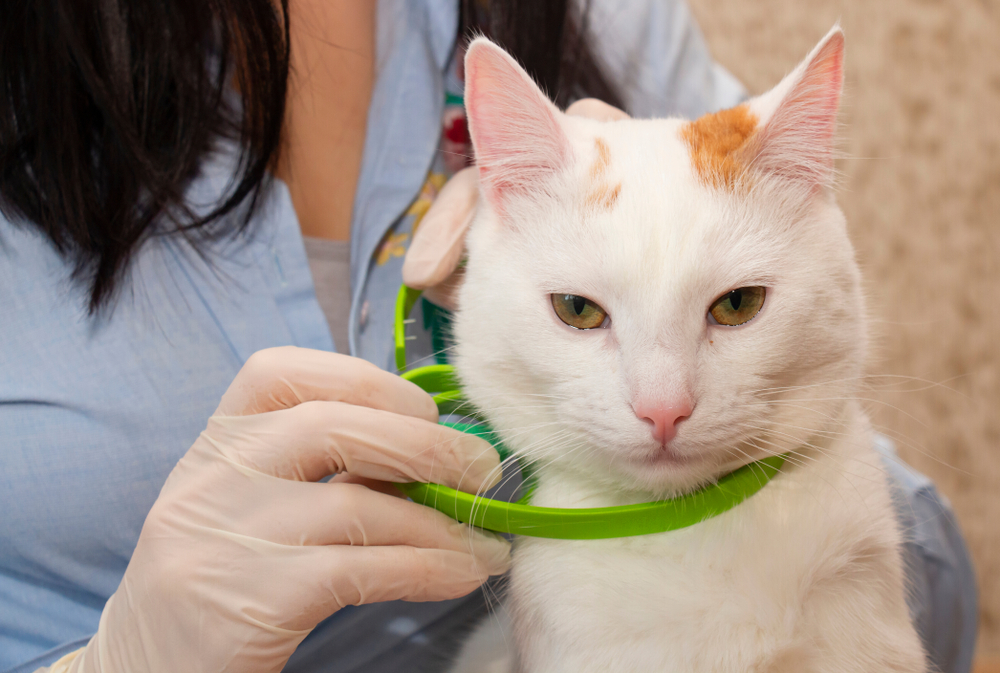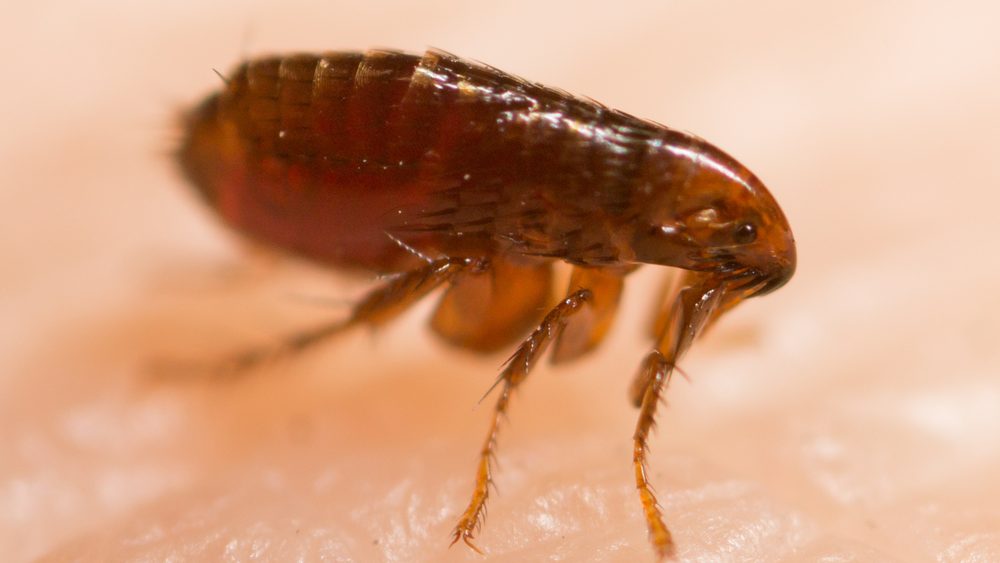Fleas inherently want to take over your environment, so you need to exert control over them first. While fleas may be out of sight, and therefore out of mind, they never stop for one moment trying to find their next bite, and can hold up to 15 times their body weight in blood. At The Pet Clinic of Salem, we are committed to helping you stay aware of how fleas can control your home, your family, and your pet, and the importance of year-round flea protection.
- Fleas are crippling — One flea bite can cause your pet to have red and inflamed skin, intense itching, and scabbing lesions. Fleas are not biased toward cats, dogs, or particular breeds—they care only about biting to find their next meal. In some pets, a protein in the flea’s saliva spurs an allergic reaction (i.e., dermatitis) that causes the pet to suffer from rashes, skin infections, and hair loss that requires prescription medication. Pets with flea allergies suffer a painful cycle of scratching, scabbing, and skin infections. In young or small pets, multiple fleas bites can cause life-threatening anemia (i.e., deficient red blood cells).
- Fleas are carriers — Flea bites not only cause discomfort for their human and animal hosts, but also pass on dangerous diseases. For example, a flea bite that contains the bacteria Bartonella can cause cat-scratch fever, a zoonotic disease that can result in an extremely high fever. Another zoonotic disease, bubonic plague, is caused when a flea carrying the Yersinia pestis bacteria bites yor pet, causing fever, respiratory issues, vomiting, and diarrhea. Also, if you happen to notice small, white living or dried worms, either dead or alive, around your pet’s hind end or in their stool, your pet may have ingested a flea that contained tapeworms, an internal parasite that travels along your pet’s intestines and feeds on nutrients your pet needs.
- Fleas are cyclic — If you have seen black spots (i.e., flea dirt) on your pet or your belongings, these signify the presence of adult fleas, which comprise only 5% of the total flea population. The other 95% includes the other flea life stages during their evolution from eggs, to larvae, to pupae, that can wait for months to hatch in warm carpet fibers and humid furniture fabric. Pet owners with an infestation may believe their flea debacle is over once they have sprayed or fogged their environment. The truth is, a flea’s life cycle is approximately two weeks in favorable conditions, so the fleas must be treated every two weeks. The best prevention is to address all flea life stages, using high heat from steam cleaning and hot washing machine water for clothing and bedding, but a professional pest control company will most successfully eradicate fleas from your environment.
- Fleas are costly — The question is not if—but when—fleas will impact your wallet. Failing to use flea prevention puts your pet at risk of veterinary care should they acquire a serious illness from a flea bite, or suffer from a painful skin infection. Plus, if your home becomes infested, flea treatment is lengthy, expensive, and necessary. You want to prevent fleas, not have to fight them and treat the problems they cause.
Year-round flea control options

For flea preventives to be effective, they must be applied year-round, since fleas don’t disappear in cold climates. You must ensure proper dosage for your pet’s size and the flea’s life stage, and administer the preventive in precise locations (i.e., applying a topical medication on the skin and not in the hair). You also need to choose the best form for your pet—for example, if your pet does not accept an additional collar, a chewable, tasty treat would be the simplest option, or for a pet who often finds themselves in water a topical liquid would not be a good choice. For convenience and consistency, determine if your pet needs a preventive that lasts 24 hours, one month, a few months, or longer.
If you encounter a flea issue and are tempted by a one-off flea bath, remember that rinsing off only a portion of fleas from your pet will not target the microscopic, unhatched eggs hiding deep in hair follicles. The best way to stay on top of flea prevention is to purchase flea control drugs classified as adulticides that eliminate adult fleas, as well as the eggs and larvae. Many parasite prevention products come in combinations that protect your pet from multiple parasites (e.g., fleas, ticks, and heartworms).
Take advantage of our team at The Pet Clinic of Salem. We are knowledgeable about fleas and are always happy to answer your questions, and to help you find the safest and most effective flea prevention product for your pet. Let us help you protect your pet, and take control of your environment—before fleas come knocking on your front door.







Leave A Comment